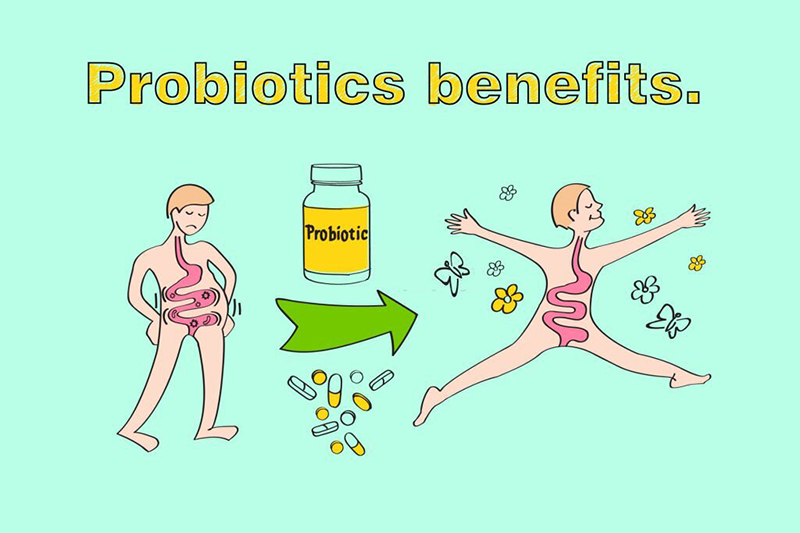Term like gut wellness and probiotics caught us off guard just as we were coming around to keto diets and intermittent fasting. They’re here to stay, according to experts. Though probiotics have recently resurfaced as a wellness trend in food and health, their benefits have been discussed since the turn of the twentieth century. probioticseverything.combifina r probiotics
Élie Metchnikoff, a Nobel Laureate from Russia, proposed that yogurt-loving Bulgarian and Russian farmers lived longer. He proposed in 1907 that the balance of good and harmful bacteria in the gut might be altered and used to improve people’s longevity and digestive strength. According to the Centers for Disease Control and Prevention (CDC), around 22.4 million Americans visit doctors each year with stomach symptoms. probioticseverything.combifina r probiotics
People are becoming more interested in digestive wellness as the prevalence of digestive problems rises. It entails boosting our probiotic and prebiotic consumption to improve our gut health. Probiotics aren’t only for yogurt and sauerkraut anymore; they’ve made their way into juices and dessert aisles, and the sector is poised to hit $50 billion in sales this year. probioticseverything.combifina r probiotics
What are probiotics, exactly?
Bacterial strains can either be beneficial or harmful to the human body. Probiotics (which means “for life”) are beneficial bacteria that are helpful for our stomachs and bodies. These are live microorganisms that, when taken, can improve our digestive health as well as aid in the treatment of various ailments. As the medical community works to prove the benefit of probiotics, one concern that frequently arises is how dangerous it is to consume foods containing live bacteria. probioticseverything.combifina r probiotics
There’s no need to be concerned about taking natural sources of probiotics because our bodies—particularly our guts—are already brimming with both beneficial and toxic bacteria. In our bowels, there are around a trillion germs. Probiotics are beneficial bacteria that help to increase the balance of good bacteria in the gut. probioticseverything.combifina r probiotics
Probiotics come in a variety of forms.
Lactobacillus and bifidobacterium are the two primary bacteria species classified as probiotics.
Lactobacillus produces lactic acid and lactase, which are enzymes that break down lactose. This lactic acid is required to keep the harmful gut bacteria under control. It is also required for muscular growth and to aid in the absorption of minerals by the body. Lactobacillus can be present in the mouth, small intestine, and vaginal canal. probioticseverything.combifina r probiotics
Bifidobacterium is a type of bacteria found in dairy products that is considered to be beneficial to the immune system. They also help digest lactose for the body’s nutritional needs and balance the proliferation of harmful bacteria in the intestines. probioticseverything.combifina r probiotics
Subtypes of DNA
The two main species we described earlier have genetic subgroups as well. The probiotic strains are listed on the labels of store-bought probiotic foods and yogurts in the form of major species followed by the name of the particular strain; B stands for Bifidobacterium and L stands for Lactobacillus. On a food label, for example, you would see L.acidophilus, where L stands for Lactobacillus and acidophilus is the probiotic subtype. B. animalis, B. lactis, B.longum, L. acidophilus, and L.reuteri are some of the most prevalent probiotic subtypes. probioticseverything.combifina r probiotics
Probiotics’ Advantages
Probiotics have been consumed as part of the native diet of cultures such as the Europeans, Indians, and Japanese for ages. Only recently has the scientific community begun to investigate the wide range of health benefits that probiotic-rich foods provide, particularly for gut health. Our stomach is also thought to be the seat of digestive fire, or agni, according to Ayurveda. The role of agni in governing critical activities of the body and metabolism is highly valued in Ayurveda. Probiotics can help support the life-giving agni. probioticseverything.com
We can feel weary, queasy, dehydrated, and weak after a bout of diarrhea. There is a clear link between probiotics and diarrhea treatment, according to research. Lactobacillus GG, a specific probiotic strain, has been shown in controlled experiments to lessen the length of diarrhea in newborns and children. Probiotics have also been proven to lessen antibiotic-induced diarrhea by 60%.
When a child was unwell with symptoms of Irritable Bowel Syndrome or any other digestive condition, mothers in Indian subcontinent cultures would feed them probiotic foods like yogurt or buttermilk to alleviate the symptoms. Because of the potential side effects and concerns about the long-term consequences of high antibiotic dosages, more people are turning to probiotics to treat these one-time digestive issues.
Apart from relieving the symptoms of IBS, or irritable bowel syndrome, probiotics have also been reported to be effective in treating Crohn’s Disease, which causes stomach pain, exhaustion, weight loss, malnutrition, and severe diarrhea. Probiotics may also help to prevent the recurrence of certain malignancies. Scientists are looking at these advantages and applications further.
Health of the Urogenital System
Probiotics have also been reported to aid in the maintenance of the microbiota in the intestinal tract and vaginal lining, both of which contain delicate microbial ecosystems. Probiotics’ healing properties can aid in the treatment of vaginosis, urinary tract infections, and yeast infections.

